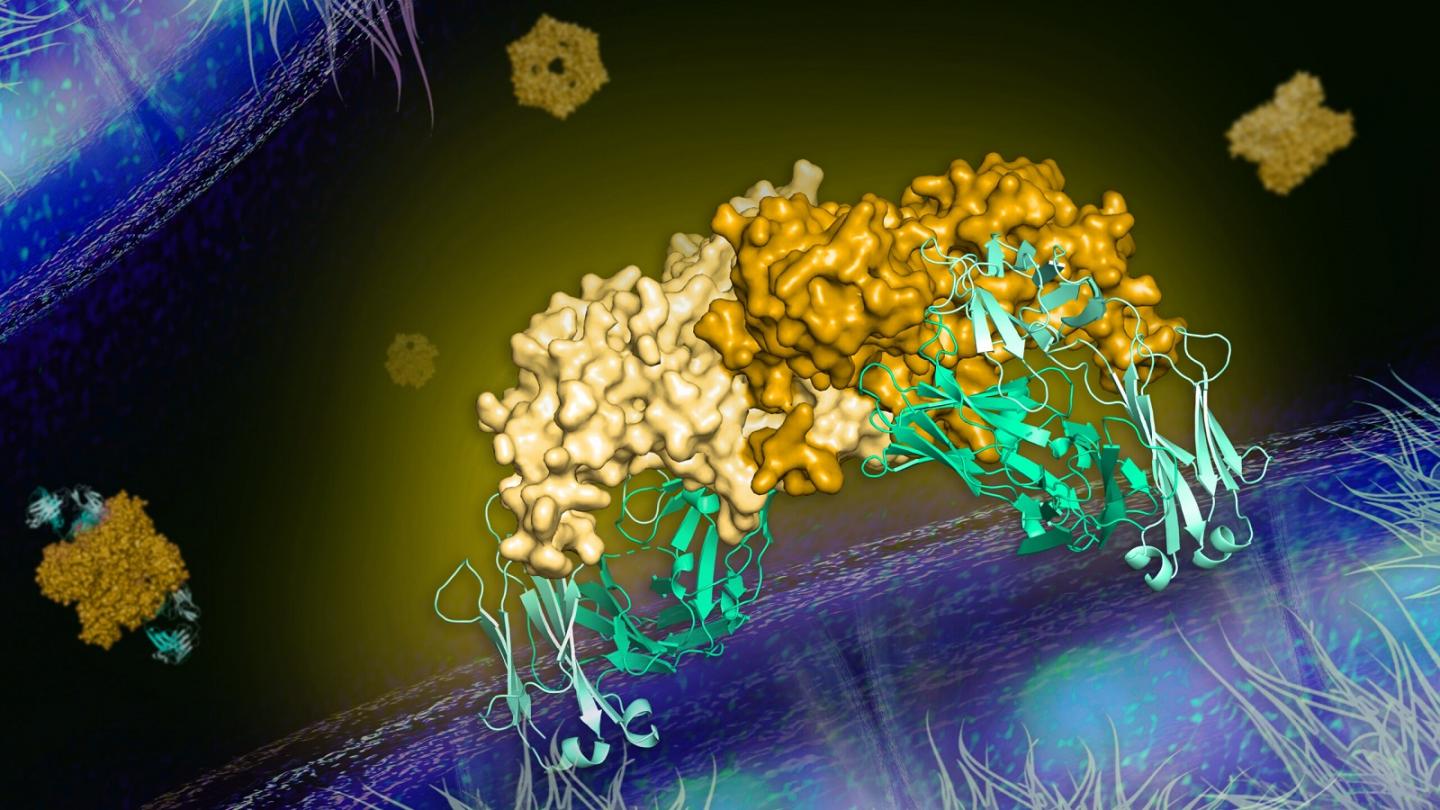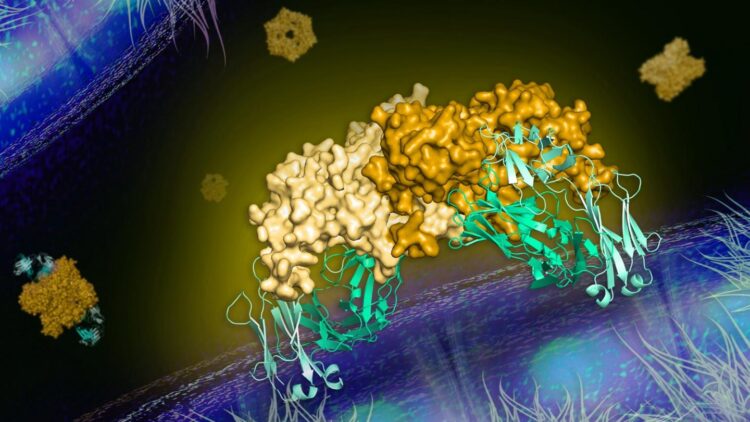
Credit: Rajani Arora, University of Michigan Life Sciences Institute
A team of researchers led by the University of California, Berkeley and the University of Michigan has discovered an antibody that blocks the spread within the body of the dengue virus, a mosquito-borne pathogen that infects between 50 and 100 million people a year. The virus causes what is known as dengue fever, symptoms of which include fever, vomiting and muscle aches, and can lead to more serious illnesses, and even death.
“Protein structures determined at the APS have played a critical role in the development of drugs and vaccines for several diseases, and these new results are key to the development of a potentially effective treatment against flaviviruses.” — Bob Fischetti, group leader with Argonne’s X-ray Sciences Division and life sciences advisor to the APS director
Currently, there are no effective treatments or vaccines for the dengue virus. Since there are four different strains of the virus, building up antibodies against one strain can actually leave people more vulnerable to subsequent infection from another strain, which makes finding an effective therapeutic more difficult. Scientists using the Advanced Photon Source (APS), a U.S. Department of Energy (DOE) Office of Science User Facility located at the DOE’s Argonne National Laboratory, have reported success.
The dengue virus uses a particular protein, called Non-Structural Protein 1 (NS1), to latch onto the protective cells around organs. It weakens the protective barrier, allowing the virus to infect the cell, and may cause the rupture of blood vessels. The research team’s antibody, called 2B7, physically blocks the NS1 protein, preventing it from attaching itself to cells and slowing the spread of the virus. Moreover, because it attacks the protein directly and not the virus particle itself, 2B7 is effective against all four strains of the dengue virus.
The research team used X-ray diffraction techniques to determine structures of the NS1 protein with a bound antibody (2B7) and showed how the antibody provides protection against the virus. These diffraction images were obtained at the General Medical Sciences and Cancer Institutes Structural Biology Facility (GM/CA) at the APS.
Researchers showed that the 2B7 antibody effectively blocks the spread of the dengue virus in live mice. They reported their results in Science. The paper suggests that this same antibody could provide new treatments for other flaviviruses like dengue, a group that includes Zika and West Nile.
“Flaviviruses infect hundreds of millions of people a year, and tens of thousands die from the associated diseases,” said Argonne’s Bob Fischetti, group leader with the X-ray Sciences Division and life sciences advisor to the APS director. “Protein structures determined at the APS have played a critical role in the development of drugs and vaccines for several diseases, and these new results are key to the development of a potentially effective treatment against flaviviruses.”
###
Read the University of Michigan press release.
About the Advanced Photon Source
The U. S. Department of Energy Office of Science’s Advanced Photon Source (APS) at Argonne National Laboratory is one of the world’s most productive X-ray light source facilities. The APS provides high-brightness X-ray beams to a diverse community of researchers in materials science, chemistry, condensed matter physics, the life and environmental sciences, and applied research. These X-rays are ideally suited for explorations of materials and biological structures; elemental distribution; chemical, magnetic, electronic states; and a wide range of technologically important engineering systems from batteries to fuel injector sprays, all of which are the foundations of our nation’s economic, technological, and physical well-being. Each year, more than 5,000 researchers use the APS to produce over 2,000 publications detailing impactful discoveries, and solve more vital biological protein structures than users of any other X-ray light source research facility. APS scientists and engineers innovate technology that is at the heart of advancing accelerator and light-source operations. This includes the insertion devices that produce extreme-brightness X-rays prized by researchers, lenses that focus the X-rays down to a few nanometers, instrumentation that maximizes the way the X-rays interact with samples being studied, and software that gathers and manages the massive quantity of data resulting from discovery research at the APS.
This research used resources of the Advanced Photon Source, a U.S. DOE Office of Science User Facility operated for the DOE Office of Science by Argonne National Laboratory under Contract No. DE-AC02-06CH11357.
Argonne National Laboratory seeks solutions to pressing national problems in science and technology. The nation’s first national laboratory, Argonne conducts leading-edge basic and applied scientific research in virtually every scientific discipline. Argonne researchers work closely with researchers from hundreds of companies, universities, and federal, state and municipal agencies to help them solve their specific problems, advance America’s scientific leadership and prepare the nation for a better future. With employees from more than 60 nations, Argonne is managed by UChicago Argonne, LLC for the U.S. Department of Energy’s Office of Science.
The U.S. Department of Energy’s Office of Science is the single largest supporter of basic research in the physical sciences in the United States and is working to address some of the most pressing challenges of our time. For more information, visit https:/
Media Contact
Beth Schlesinger
[email protected]
Original Source
https:/
Related Journal Article
http://dx.





